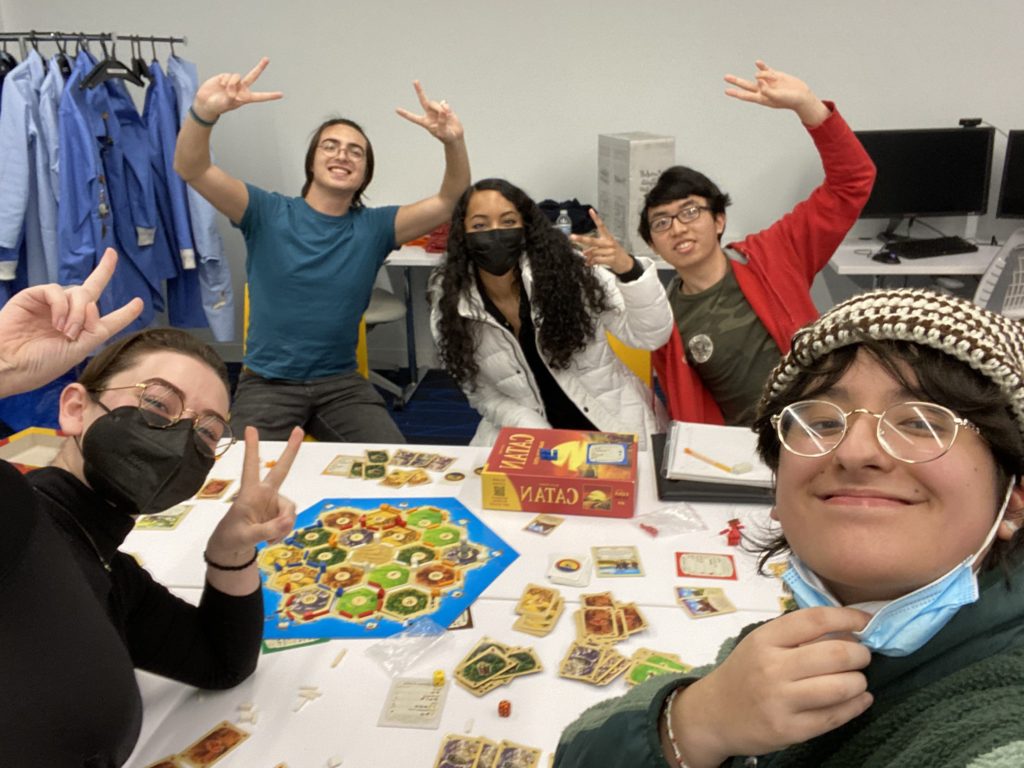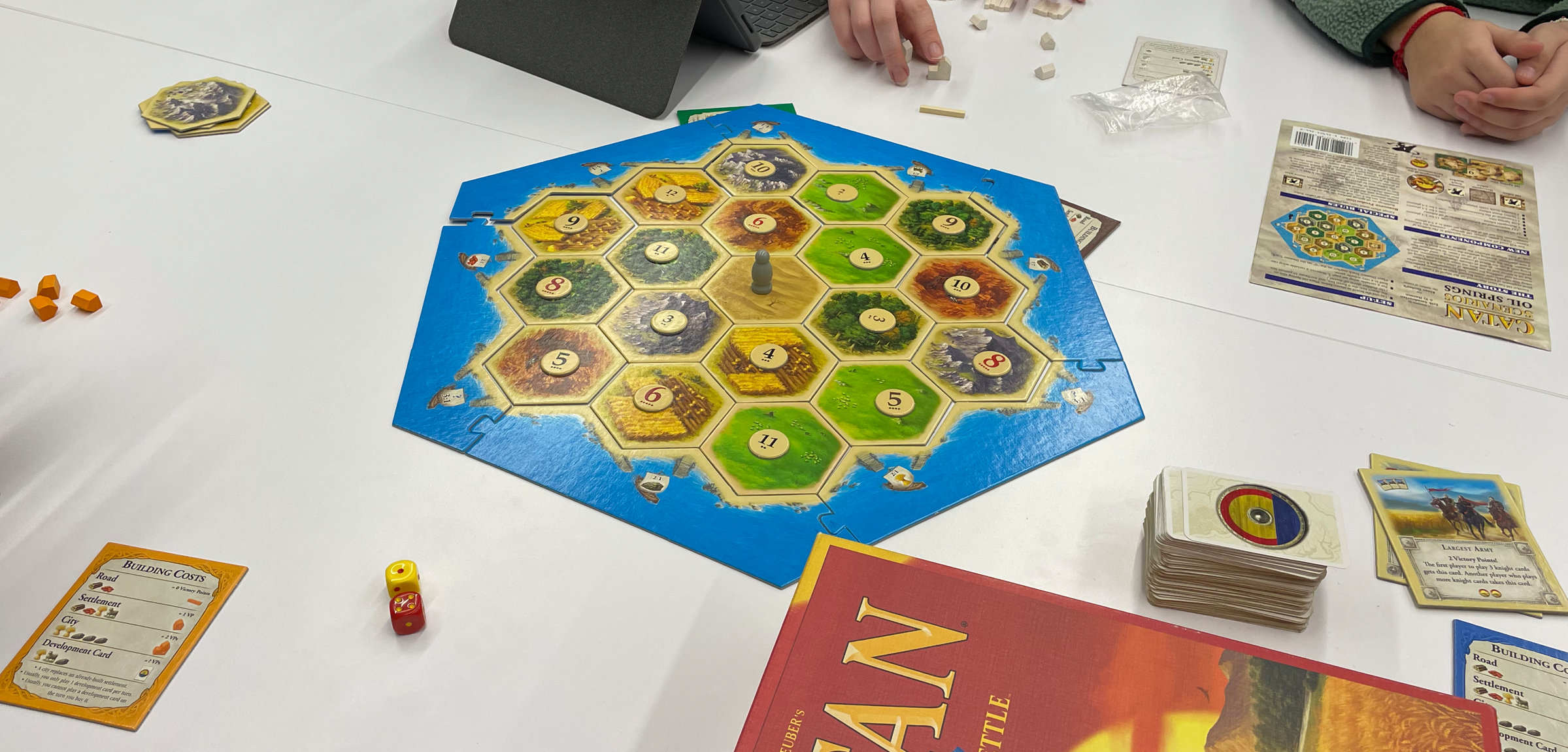Games involving the environment have a tendency to situate players in an existing hostile setting. The Last of Us (2013), Minecraft (2011–), and multitudes of postapocalyptic games derive their sense of precarity from the uncertainty of survival without player intervention. In these genres, the environment plays a largely passive role, housing unpredictable dangers, or—in the case of the Battlefield series (2002–)—offering destructibility to open strategic advantages for the players.
In The Settlers of Catan (1995), the environment becomes actant, occupying a space more akin to a dealer in poker than the stage through which other events emerge. The game shares its aesthetics with the grand strategy genre, in which players adopt the role of an emerging state rather than a character. The premise is straightforward: maximize economic exploitation of the environment before the other players at the table. Players roll to determine which plots of land generate resources, and they may use those resources to gain ownership of more plots. To an American audience, the portrayal of human absence and the opportunity to conquer an empty world resonates with the familiar rhetoric of frontier individualism, focusing on the entitlement to land over the subjugation of its inhabitants. The game’s aerial perspective further abstracts the labor and environmental exploitation beneath the player’s actions, similar to how grand strategy videogames quite literally distance the player from graphic depictions of violence, despite their overt reference in textual form. Moreover, the formal mechanics of Catan allow for trading and cooperation between players but do not enforce fairness. Early in my group’s game, I gained control of one of the map’s few ore supplies, placed next to a 3:1 port. I initially agreed to 1-to-1 trades to establish friendly alliances; as the game progressed, I increasingly engaged in asymmetrical trades, offering my supply only for two other resources or intentionally denying the other players’ ore by using my port. Rather than a poor balancing decision, the potential to explore inequity foregrounds the agency of the environment: the island of Catan shifts the social dynamics of the players away from mutually beneficial interactions and towards parasitism.
In a system entrenched in settler colonial mechanics, what does it mean to win—or alternatively, what does it mean to fail? Catan explicitly drives player motivations through a celebratory characterization of colonization; the game rewards players with new abilities to exploit each other through the monopoly development cards, block others through the robber mechanic, and more efficiently garner resources by urbanizing their settlements. Winning necessitates direct competition, causing social and environmental breakdown. Unlike grand strategy videogames, board games offer an interpretive openness that invites players to modify rules beyond their pre-programmed possibilities. For example, I once had to leave a game early during a session outside of class. Because no one had reached ten victory points, and my friends and I selected a winner based on different metrics. Though our metric was still rooted in a winner-take-all system, one could imagine a collaborative variant of Catan, in which the win condition encourages sustainable and interdependent economies rather than a self-sustaining, insular monopoly. Pragmatically, however, players uncritically accept the premise of competition. A Google search reveals numerous mathematical analyses of the game (including a particularly thorough thesis paper), promising hyper-optimized avenues for garnering resources and strategically controlling board space. I propose that The Settlers of Catan is a game about enacting failure: failure to divorce ourselves from economic and contractual language that leak into our gamespaces, failure to reorient towards collective action, and failure to remove ourselves from winner-takes-all modes of human sociality that rationalize environmental exploitation.

Thank you to Monica, Austin, Izzy, and Katherine for their time and patience as I fumbled through the rules.
References
Carpenter, M.J. (2021). Replaying Colonialism: Indigenous National Sovereignty and Its Limits
in Strategic Videogames. The American Indian Quarterly. 45(1), 33-55. https://www.muse.jhu.edu/article/776046.
Chang, A. Y. (2019). Playing Nature: Ecology in Video Games. The University of Minnesota
Press. https://doi.org/10.5749/j.ctvthhd94.
Juul J. (2013). The Art of Failure: An Essay on the Pain of Playing Video Games. MIT Press.
